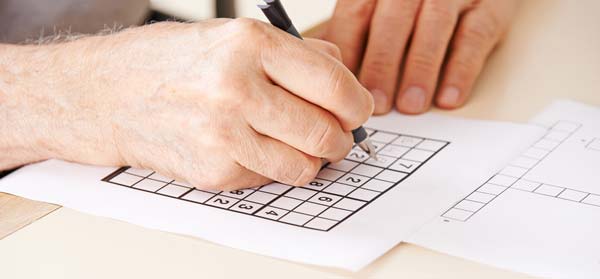Keeping your mind active not only relieves boredom, but can also help keep your brain sharp, improve your memory and stave off the onset of dementia.
As Australians live longer, the prevalence of degenerative and cognitive brain conditions increases. Despite many trials and studies into the cause and effect of diseases such as Alzheimer’s, the reality is that a cure may never be found. Therefore, it’s important that individuals take care of their own minds by keeping their brains active.
As well as undertaking tasks that give your brain a workout, your physical health can also have an effect on how your mind ages. Eating a healthy diet, reducing your alcohol intake, stopping smoking and being more physically active can all help to keep your brain healthy. And of course, if you’re undertaking physical activities such as cycling or climbing, wearing a helmet to protect your head, should you have an accident, is necessary.
But it’s not all about running around and eating well. You need to ensure you are getting enough sleep, or at least resting, and that you have regular health checks, when needed or recommended.
So now you have your general health in order, what can you do to keep your mind active? It could be something as simple as a daily crossword puzzle or Sudoku. Or maybe challenge yourself by learning a new language?
The Brain Foundation offers eight handy online booklets, from pop trivia to history quizzes and maths problems to something more artistic.
And don’t forget, it’s often the everyday repetitive tasks that can help us keep our brains active. For example, when you’re doing a supermarket shop, try to add up in your mind what you think your final bill will be. You may even wish to consider keeping a journal and at the end of each day, write down what you did, or a particular thought for the day. Over time you’ll be able to recognise any change to your recall ability and be able to act if you feel your memory is failing.
Find out more about keeping your mind active at fightdementia.org.au
Related articles:
Dementia: are men seeking help?
Dementia drug one step closer

